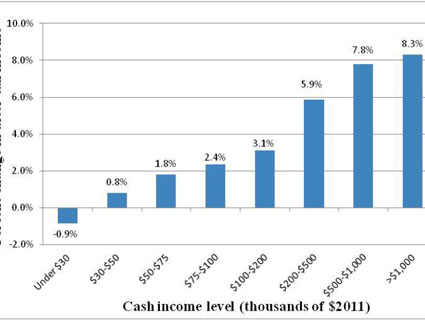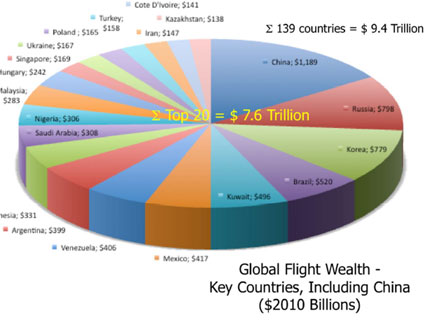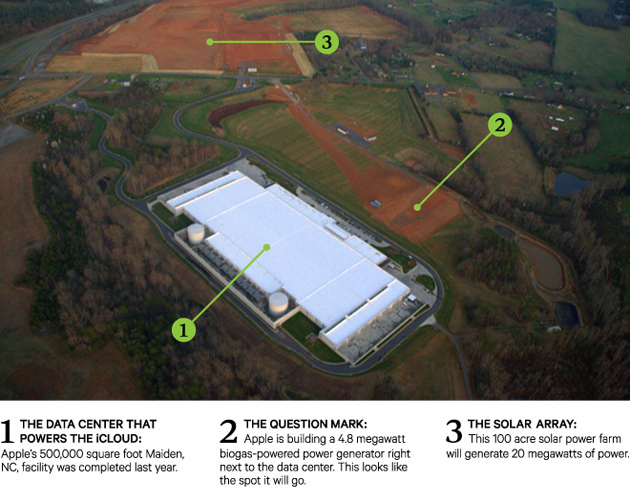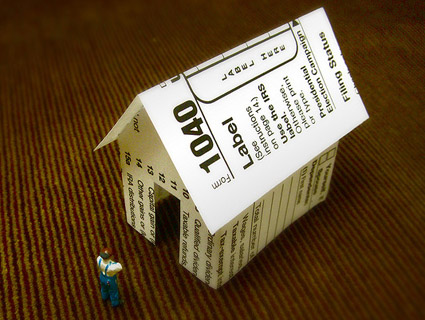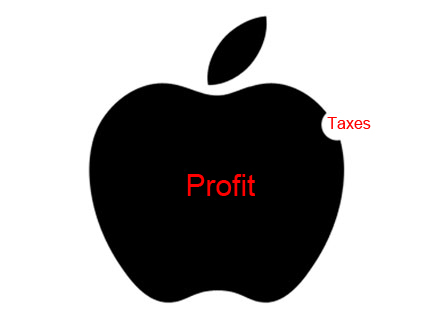
If corporate America is going to lead the way out of the recession, then Apple would seem to be its Horatio Alger. The expansion of the nation’s most lucrative tech company into cloud computing is driving demand for vast data centers and the workers needed to build and maintain them. Just last week, Apple gained approval to build a $1 billion server farm in Reno, Nevada—a state that suffers from the nation’s worst budget deficit and highest unemployment rate.
But Apple’s move will do little to nothing to solve Nevada’s employment and budget woes. To the contrary, before Apple would agree to break ground in the Silver State, it demanded and received $88 million in state and local tax breaks—the largest corporate tax exemption in Nevada history. What’s more, the deal doesn’t even require that Apple create new jobs or hire locals.
While defenders of the tax break argue that it will help incubate a new tech industry east of the Sierras, the industry’s own experts aren’t so sure. “People have a vision of data centers as places where there are lots of nerds walking around with keyboards and configuring servers,” says Rick Villars, vice president of data center and cloud research at the corporate consultancy IDC, “but the scales and the types of data centers that an Apple or a Facebook or an Amazon or any of those companies are putting together are very different; the actual head counts in the facility are minimal. It’s really a lights-out environment.”
This fact hasn’t stopped other states and cities from rewarding Apple and its brethren with similarly sweet deals. In 2010, the North Carolina Legislature debated for less than a minute before giving Apple a $46 million tax break to construct a data center in the town of Maiden, which itself agreed to cut Apple’s would-be property taxes in half, and slash local taxes on its assets by 85 percent—all for creating 50 jobs, none of them set aside for locals. Tech companies such as Yahoo, eBay, and Facebook have inked similar agreements in Oregon, Washington, and Utah.
Nevada, hammered by the mortgage crisis and increasingly stiff competition from out-of-state casinos, certainly needs the jobs Apple claims it will provide: Some 200 contract workers and 35 full-timers earning an average of $25 an hour. Yet even if the company makes good on those numbers, it is receiving a subsidy exceeding $374,000 per worker—more than double the norm for factory subsidies in the (highly subsidized) auto industry. “Unlike the auto industry, however, server farms do not spin off large supply chains,” points out Leigh McIlvaine, an analyst with Good Jobs First, a group that tracks corporate subsidies. “When you are subsidizing a server farm, which really only has benefits through property tax revenues, and you take those property tax revenues away, you are not going to be bringing any economic benefit to the state at all.”
Nevada will be bringing a lot of benefit to Apple, however. The deal reduces Apple’s taxes over the next decade from an estimated $105 million to a mere $17 million, with much of the $88 million difference coming from an 85 percent reduction in personal property taxes and sales taxes on the roughly $1 billion in equipment Apple intends to purchase. The company will further reduce the tax on its servers by purchasing them through a shell office opened in a “tourism improvement district” in downtown Reno—a scheme the Reno City Council approved last month. All told, the arrangements lower Apple’s sales tax rate from 7.5 percent down to 0.5 percent—a steal for a facility that consists largely of expensive computer gear.
But that’s not all: Apple also has the option to extend its personal property tax exemption for up to 30 years if it makes additional investments.
Some Nevada officials question whether getting Apple is worth the price. “I have significant concerns about the length of the term of the agreement along with the overall percentage of the abatements that were offered in exchange for such a limited creation of jobs,” Secretary of State Ross Miller told me. “Whether or not this strategy will cause more significant economic activity to move to Nevada remains to be seen.”
To secure the data center deal, Apple relied on Greg Ferraro, a close adviser to Gov. Brian Sandoval. Steve Hill, director of the Governor’s Office of Economic Development, told the the Las Vegas Sun that the terms were negotiated in private, out of concern that “the public rumor mill would actually have run them off.”
In the event that Nevada balked on the tax breaks, Apple had said that it would locate the facility in Prineville, Oregon—the state has no sales tax, and tiny Prineville is in a “rural enterprise zone” that offers a 15-year property tax exemption. Prineville also benefits from cheap hydropower, which would have saved Apple’s power-hungry data center about $12.5 million in energy costs over 20 years. Still, Apple has said it eventually plans to build its own renewable energy plant for the facility, and its executives liked Reno’s proximity to its Cupertino headquarters—locating the servers in tax-happy California was apparently never a consideration.
It’s not as though Apple needs to play economic hardball with struggling local and state governments. It was the third most profitable company on the Fortune 500 last year, and is sitting on $110 billion in cash reserves. By contrast, Nevada faces a $1.2 billion shortfall in 2013. That’s more than one-third of its budget.
Even so, Nevada’s Steve Hill is convinced the pact with Apple makes sense. “Showing that a company with the stature of Apple has chosen Nevada has benefits that are not easily quantifiable, but I think will show up,” he told me. Nevadans just shouldn’t expect to notice them anytime soon. After all, he adds, “We have tried not to present it as a solution for the state.”


